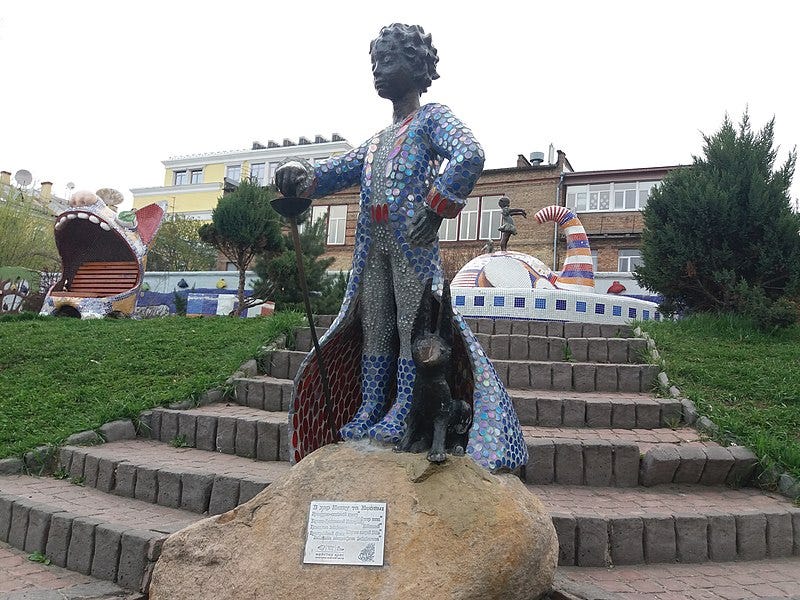How would you answer the question “are you happy”?
Love, and compassion are like lit lamps in the darkness of a strange and often cruel world. It is these brilliant pinpricks of light that exist as counterpoints to the fall from imagination most adults eventually suffer.
“Trying to be witty leads to lying, more or less.” — Antoine De Saint-Exupery
The Little Prince — easily the most famous novel by the French philosopher and writer Antoine De Saint-Exupery — highlights these aspects of humanity in the most delightful of ways.
The story is of a little prince who comes to Earth and finds, in a stranded aviator, an odd friend. The reader is exposed to philosophical concepts that remain as painfully important in these troubled times as they were during the time of Saint-Exupery’s writing.
In the middle of the Second World War, the global consciousness was fraught with division, exploitation, and ever-present fears regarding the future of civilization as it had been known.
This is, unfortunately, a cycle of fear which has repeated, and continues to operate. How little we have learned.
We live in a world of numbers, and the economics of modern life demean the exploration of artistic imagination; of laughter and friendship and love.
Our capitalistic ideology resists a future in which a growth into common brotherhood — common love — is possible.
“That’s right,” the fox said. “For me you’re only a little boy just like a hundred thousand other little boys. And I have no need of you. And you have no need of me, either. For you I’m only a fox like a hundred thousand other foxes. But if you tame me, we’ll need each other. You’ll be the only boy in the world for me. I’ll be the only fox in the world for you . . .”
Like the narrator in The Little Prince, who tells us about his first drawing as a child of an elephant inside a boa constrictor, there is within each of us a deep longing.
A longing for a type of understanding that transcends the practical adult world.
We long for our internal truth to be visible to others, and theirs to us — and this is one of the reasons we find ourselves so dissatisfied with the world of consumerism. We want to experience something magical before we die, and that takes seeking a deeper connection with the universe than the one our society allows.
The adult world is replete with cynical and clinical numeration. Adults detach themselves from the world in an effort to quantify the essence of existence.
In so doing, these so-called “practical people” grip existence so tightly that they often choke the life right out of it.
How would you answer the question “are you happy”?
As adults, we become distracted — force distractions upon themselves — in an effort to provide meaning to life. But, we forget that life does not require a Nine-to-Five to be meaningful.
Like the businessman who the little prince encounters in the story, adults reach out into the universe and claim ownership of what they find, and thereby lose sight of the beauty of life.
Too many of us cherish the idea of a life popularized through reality TV, false projections of dull, flat existences.
“Good Morning,” said the railway switchman.
“What is it you do here?” asked the little prince.
“I sort the travelers into bundles of a thousand,” the switchman said. “I dispatch the trains that carry them, sometimes to the right, sometimes to the left.”
[…]
“What a hurry they’re in,” said the little prince. “What are they looking for?”
“Not even the engineer on the locomotive knows,” the switchman said.
Children gaze gleefully out of the windows of amoving train, appreciating the scenery of life as it flows inevitably past. Adults are concerned only with the destination — forgetting that the ultimate destination is embodied by the little yellow serpent whom the little prince meets when he first arrives in the desert. The destination of death.
The serpent eventually becomes the vehicle for the little prince’s return to the stars. Just so: the destination of life is the end of life; therefore it is the process of life — not the destination of life — which should most concern the living while they are alive. Children have this down. It’s up to us adults to remember how to experience life in that way.
There is a sweet sense of sadness and longing to be found in The Little Prince, especially for adults.
“…if you come at four in the afternoon, I’ll begin to be happy by three. The closer it gets to four, the happier I’ll feel. By four I’ll be all excited and worried; I’ll discover what it costs to be happy! But if you come at any old time, I’ll never know when to prepare my heart . . .”
Within The Little Prince, we adults find profound meanings that draw us back toward the simplicity of the existence we enjoyed as children.
Children who experience this tale will find something wonderful in the way adults are proven to be foolish.
If those kids are lucky, and the stars are bright overhead, and the moment is just right, the lessons of this tale may carry over from childhood into adulthood. The greatest hope, in this strange technological age, is that a child might grow up with some of their wonder and imagination intact.
The Little Prince explores the deeper secrets of reality without demanding answers. The answer is the process of living, the process of loving, and… yes, the process of life’s end as well.
It suggests that in the shared experience of life — in the sharing of life — we can learn again to be free.
This article was originally published in the Duende literary journal.

